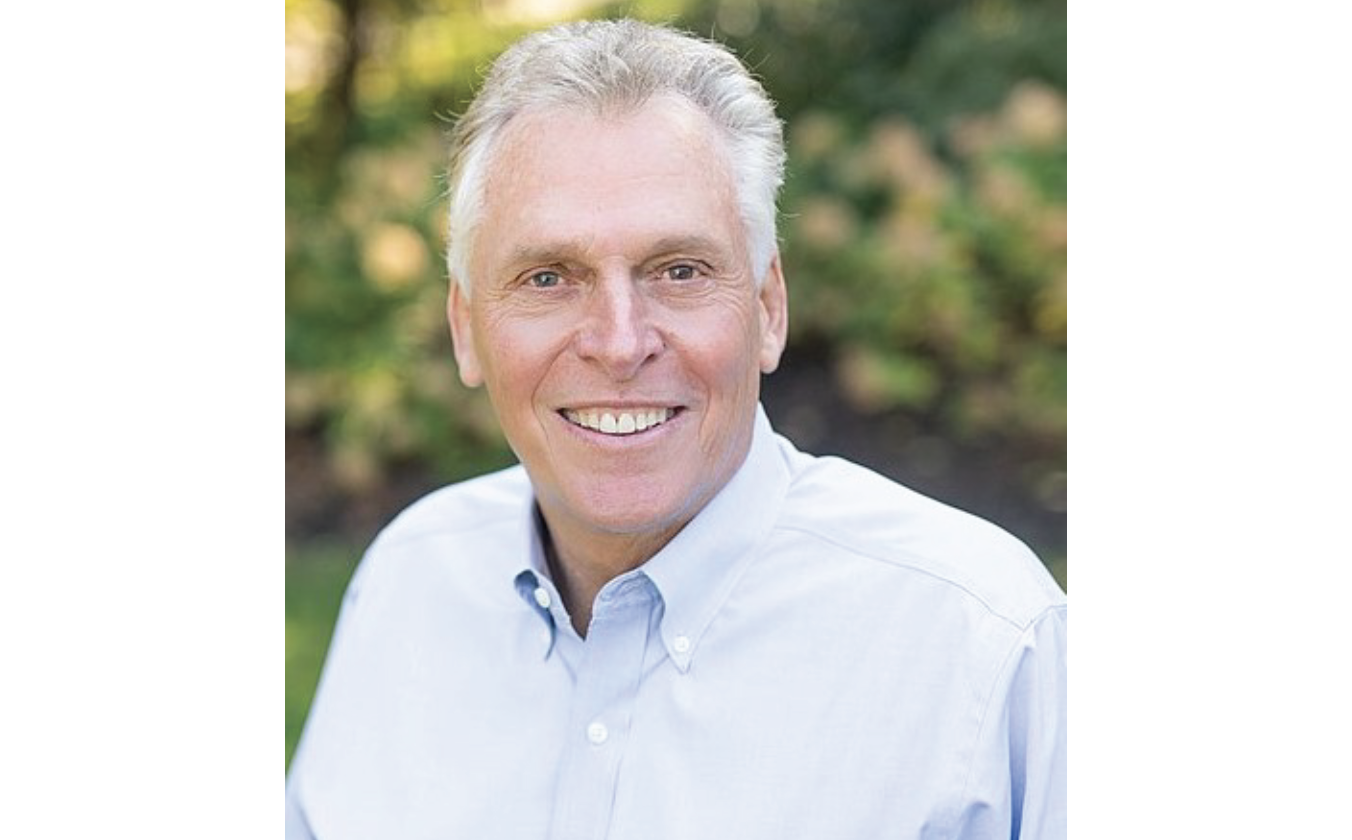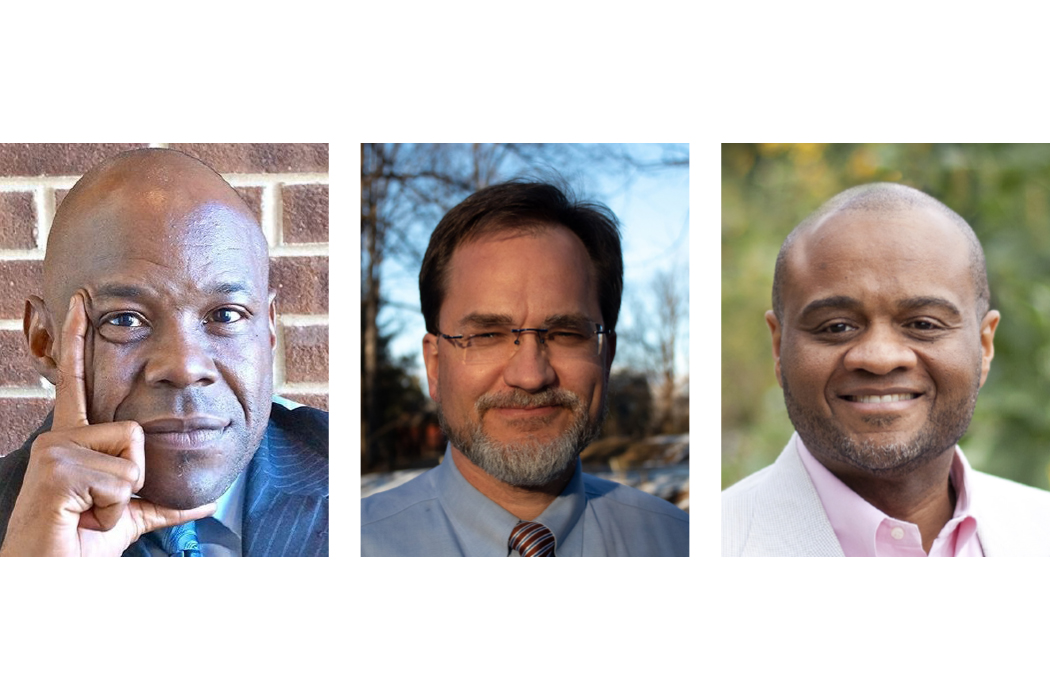Primary day is June 11, and there’s more on the ballot than the 57th District race between Kathy Galvin and Sally Hudson. If you live in the city, the three people who win the Democratic nomination will likely be the ones to fill the three empty seats on City Council in November because of the city’s overwhelming Dem majority—although Nikuyah Walker upended that tradition with a win as an independent in 2017.
Albemarle has two Dems facing off in the Rio District, where Norman Dill did not want a second term on the Board of Supervisors, as well as in the sheriff’s race. And there’s a lot going on in the 17th Senate District, most of which is in Spotsylvania with a sliver of eastern Albemarle. Two Dems are looking to challenge incumbent state Senator Bryce Reeves, as is a member of his own party.
City Council
 Sena Magill
Sena Magill
Age: 46
Hometown: Charlottesville
Education: Tandem; PVCC;
then UVA, B.A. in psychology
Day job: Mom and owner of Hatpindolly Vintage; previously at PACEM and Region Ten
Political experience: Volunteer for Leslie Cockburn; member Charlottesville Democratic
Party Committee of 100;
current Carver precinct co-chair
Biggest issue: Climate change and affordable housing. We
have a lot of work to do to reduce our carbon footprint.
We have to work on our public transit, city walk- and bikeability, density, and the efficiency of units, tying affordable housing and climate change together.
Special power: Problem solving, empathy, and understanding. And I can make a beautiful and tasty cake.
 Lloyd Snook
Lloyd Snook
Age: 66
Hometown: Born in Cranford, New Jersey. I moved here when I was 8.
Education: Venable; Walker; Lane High School; Stanford University, A.B. in economics; University of Michigan Law School, J.D.
Day job: Attorney, Snook
& Haughey, P.C.
Political experience: Chair of the Charlottesville Democratic Party, 2001-2004; on the
State Central Committee and the 5th District Democratic Committee, 2005-2013
Biggest issue: Getting city government working effectively again so that we can begin to address substantive issues like affordable housing.
Special power: Speed reading, and I stay up later at night than most normal people.
 Michael Payne
Michael Payne
Age: 26
Hometown: Charlottesville
Education: Hollymead and Baker Butler; Albemarle High School; William & Mary, B.A.
in government
Day job: Affordable housing advocate
Political experience: Common Good fellow; Tom Perriello’s 2010 congressional campaign; researcher, Tim Kaine’s 2012 Senate campaign; co-founded Indivisible Charlottesville; volunteer for multiple House
of Delegates campaigns in 2017; organizer with the Charlottesville Low-Income Housing Coalition
Biggest issue: Creating truly affordable housing, and preventing Charlottesville from becoming a small-town version of San Francisco.
Special power: Bringing people together through community organizing.
 Bob Fenwick
Bob Fenwick
Age: 73
Hometown: St. Louis, Missouri
Education: Georgetown University, B.S. in physics
Day job: Small business owner, general construction contractor
Political experience: One term on City Council 2013-2017; numerous city and community environmental, historical, planning, and budget committees
Biggest issue: Addressing the need for City Council to set representative, common-sense city policies that have achievable goals for all citizens.
Special power: Photographic memory…except for names.
 Brian Pinkston
Brian Pinkston
Age: 47
Hometown: Albany, Georgia
Education: Georgia Tech, B.S. in mechanical engineering; UVA, Ph.D. in philosophy
Day job: Project manager, facilities management, UVA
Political experience: Region Ten board member; active with Charlottesville Democratic Party; volunteered on Kellen Squire’s campaign in the 58th
Biggest focus: To build strong personal relationships among council members so that it can function well.
Special power: I guess this is a power I want to have? To be able to see in the dark.
Albemarle
Albemarle County
Board of Supervisors: Rivanna District
 Bea LaPisto Kirtley
Bea LaPisto Kirtley
Age: 69
Hometown: Keswick
Education: B.A. in American studies; M.S. in school management and administration
Day job: Retired and a volunteer for local nonprofits—Piedmont CASA, Hospice of the Piedmont, and 100+ Women Who Care
Political experience: Mayor, council member, and planning commissioner in Bradbury, California; board of directors, South Coast Air Quality Management District; Metropolitan Transit Authority; California Contract Cities Association; San Gabriel Valley Council of Governments
Biggest issues: Transportation, education, affordable housing, and climate resilience.
Special power: Energy and focus.
 Jerrod Smith
Jerrod Smith
Age: 29
Hometown: Barboursville
Education: Albemarle High School; Bucknell University; UVA Batten School of Leadership and Public Policy, MPA
Day job: Grants analyst, PRA Health Sciences
Political experience: Rivanna District Democratic co-chair; member of the Places 29 North Community Advisory Committee
Biggest issue: Those that stem from income inequality throughout the region.
Special power: Facilitating collaboration.
Sheriff
 Chan Bryant
Chan Bryant
Age: 49
Hometown: Charlottesville, member of the Scottsville community for the past 11 years
Education: Piedmont Virginia Community College, associate’s in police science; James Madison University, bachelor’s in business administration
Day job: Chief deputy for the Albemarle County Sheriff’s Office for the last four years
Political experience: None, but after knocking on hundreds of doors this spring, I’m learning a lot about it.
Biggest issue: Manpower shortage. We will be adding an extra circuit court judge and a Juvenile & Domestic Relations Court judge beginning July 1. Additional staffing was requested in the FY19/20 budget, but not all requested positions were approved. If elected, I will make needed staffing a top priority.
Special power: Time traveler— I would want to travel back in time to be able to tell my dad how much I love him since I did not get the chance to tell him before his sudden passing two years ago.
 Patrick Estes
Patrick Estes
Age: 38
Hometown: Richmond
Education: University of Virginia
Day job: Regional director,
RMC Events
Political experience: First-time candidate
Biggest issue: To push the envelope of what it means to be elected in Albemarle beyond just core responsibilities, aiming to lead this office through community engagement, green-energy initiatives, growing partnerships with state and local officials, and more.
Special power: Incredible agility. From my time on the football field, to running security at the Super Bowl and events throughout Virginia, and raising three kids, I know what it means to be flexible and adaptable in every situation.
17th Senate District
Democratic primary
 Amy Laufer
Amy Laufer
Age: 47
Hometown: Mt. Calvary, Wisconsin
Education: University of Wisconsin-Milwaukee, B.S. in geology; Columbia Teachers College, M.Ed. in secondary science education
Day job: Math and science teacher until my second child was born with medical issues
Political experience: Commission for Children and Families as an advocate for children with special needs; Charlottesville School Board for seven years, serving as both vice chair and chair; founder of Virginia’s List, a PAC with the goal of electing women to Virginia state office
Biggest issue: As a former teacher and school board member, I am extremely passionate about education, including universal preschool, increased vocational and technical training, and [including] broadband [as] part of access to education.
Special power: Getting three kids out the door and to school on time!
 Ben Hixon
Ben Hixon
Age: 36
Hometown: Monroe, Louisiana
Education: NYU; Hunter College; University of Washington
Day job: Computer scientist/engineer and community activist
Political experience: 2017 Democratic nominee for the 30th district of the House of Delegates; chair of the Culpeper County Democratic Party
Biggest issue: Strengthening education, including increasing teacher pay and affordability
of higher education and investing in trade schools and vocational training.
Special power: As an engineer, I seek to understand problems, develop solutions, and implement fixes that are practical and efficient. I don’t shy away from complexity, I focus on it.
Republican primary
 Bryce Reeves
Bryce Reeves
Age: 52
Hometown: Spotsylvania
Education: Texas A&M University; George Mason University
Day job: Owner and operator of Bryce Reeves State Farm Agency; former Army Ranger and police detective
Political experience: Senator, Virginia’s 17th Senate District; Spotsylvania County Republican Committee chair
Biggest issues: Protecting those with pre-existing conditions, and providing a variety of affordable health care options; protecting our most vulnerable: foster children and the unborn; supporting and ensuring the well-being of our veterans and law enforcement officers.
Special power: Would be to heal the sick.
 Rich Breeden
Rich Breeden
Age: 50
Hometown: Waynesboro
Education: American Military University, BA and MA; Henley-Putnam University,
Ph.D. candidate,
Day job: Small business owner
Political experience: Not a politician, and have never run for public office until now
Biggest issue: Changing the way Richmond does business and bringing people from all walks of life together to solve the challenges facing the district. Defend the Constitution; protect the unborn; fight for redistricting reform, term limits, and campaign finance reforms; work with others to improve our education system; and address the challenges associated with emerging technologies and automation that will affect our job market.
Special power: My unique background working with emerging technologies gives
me an understanding of how automation is impacting today’s manufacturing, services, and transportation jobs, and how
these same technologies will threaten individual liberties.
For a detailed look at the 57th District Democratic primary, see our feature story.


















